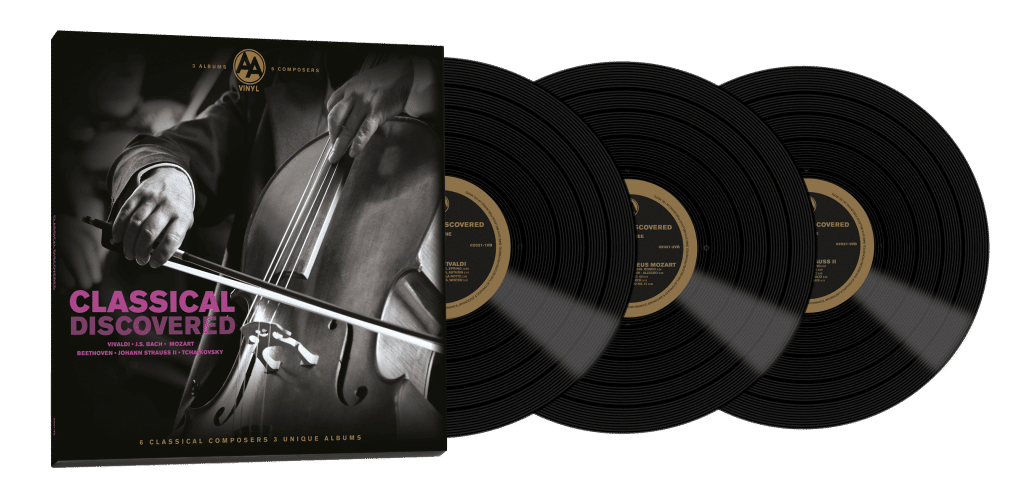
CLASSICAL DISCOVERED
Welcome to the rich and exciting world of Classical Music. In use only since the 19th century, the term ‘western classical music’ was applied to mark the golden age between Johann Sebastian Bach and Beethoven. It applies to religious and secular forms of art music and includes instrumental music like sonatas, concertos, and symphonies, as well as mixed instrumental and vocal forms like operas, cantatas, and oratorios. Classical music is European art music, distinguishable from non-western classical forms by its use of ‘staff notation’ – written-down musical scores instructing a performer in pitch, meter, tempo, and rhythm. Between 1550 and 1900, the norms of western classical music became codified and this is known as the ‘common practice period’.
This essential collection introduces some of the most renowned composers in western classical music history and provides a musical insight into four key eras in the development of the genre and included in the common practice period. These are: Baroque, Classical, Romantic and Light Music. Baroque music dates from between 1600 to 1750 and was, initially at least, used as a derogatory term, criticising this new ornate style. There is some disagreement as to the term’s precise origins. In French it means ‘bizarre’ or ‘lively’, while in Portuguese it is derived from the word ‘barroco’, meaning ‘badly formed pearl’. Featured here are works from two of the period’s definitive composers, Antonio Vivaldi and Johann Sebastian Bach. The Classical Period followed the Baroque era and is dated from 1750 to 1820. Classical music was lighter and less complex than Baroque music. It was characterised by a ‘galant style’ that privileged a light elegance that stood in sharp contrast to the ornate grandeur of Baroque. This collection showcases the works of two heavyweights of the Classical era – Wolfgang Amadeus Mozart and the man he influenced, Ludwig van Beethoven. The period following on from the Classical era, from 1830 to 1900, is known as the Romantic or ‘Romance’ period. In this iteration of the genre, instrumental music was seen as the ultimate medium for the expression of emotions, and can be seen to contrast with the formality and restraint of music in the previous classical era. Included in this sampler are works from one of the most noted composers in this style, Pyotr Illyich Tchaikovsky.
Light classical music (or simply ‘Light music’) emerged in the nineteenth century and continues up to the present day. The music is more accessible and appeals to wider audiences than the previous cycles highlighted here. Light music was more focussed on the melody than had been the case in previous periods. A key composer of Light Music was Johann Strauss II, and his waltzes in particular exemplified this new popular Light classical music and influenced many other composers in the process. Beethoven famously said, “Music is a higher revelation than all wisdom and philosophy”. Your musical epiphany starts here.

